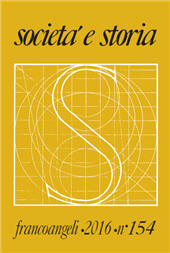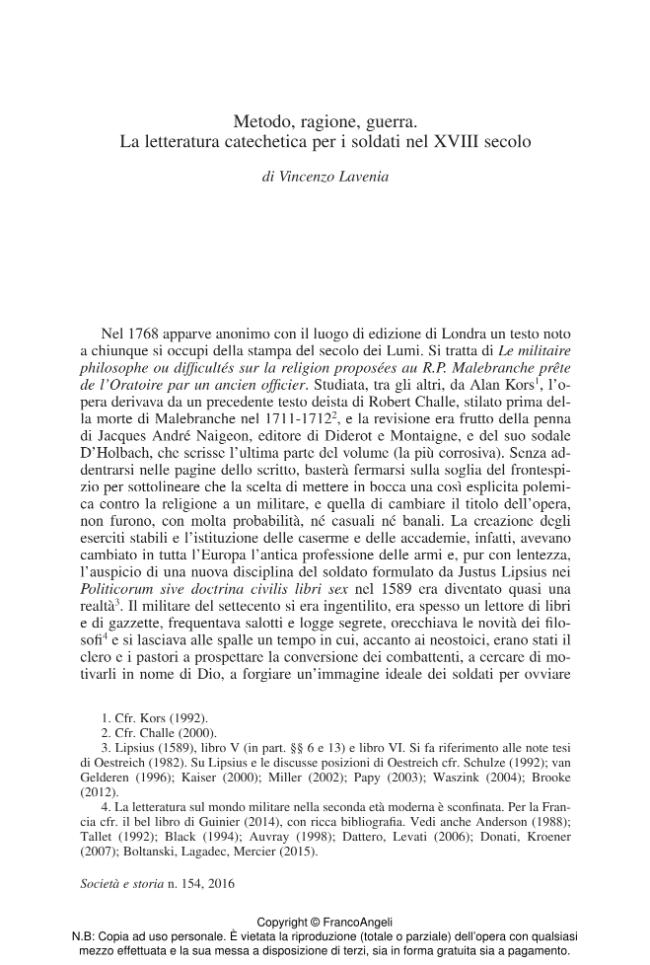Metodo, ragione, guerra : la letteratura catechetica per i soldati nel XVIII secolo
767-785 p.
Il saggio analizza una serie di testi del XVIII secolo destinati ai cappellani militari, agli ufficiali e ai soldati comuni, comprando la produzione a stampa e le ordinanze di diversi paesi dell'Europa, cattolica e protestante. Partendo dalla nascita del genere dei catechismi per i soldati nel XVI secolo, esso mostra come dopo Westphalia, con l'istituzione delle caserme e una disciplina militare più formalizzata, i regolamenti recepirono l'impulso educativo della letteratura cristiana per i soldati, mentre quella stessa letteratura divenne più neutrale dal punto di vista ideologico, più mondana e più patriottica.
Più tardi la catechesi per i soldati dovette i fare i conti con l'Illuminismo, di cui tentò di assorbire gli aspetti più compatibili, mutando atteggiamento dopo gli anni ottanta del Settecento come effetto della radicalizzazione di una parte della cultura filosofica, della chiusura reazionaria delle Chiese e infine della Rivoluzione. Fu allora che tornarono in auge gli appelli alla guerra santa abbandonati nella catechesi militare nel corso del XVIII secolo. [Testo dell'editore].
The paper analyzes a number of eighteenth-century texts intended for military chaplains, officers and common soldiers, comparing these books and the ordinances from different countries of Europe, Catholic and Protestant. Starting from the birth of the genre of catechisms for soldiers in the sixteenth century, it shows that after Westphalia, with the establishment of the barracks and a more formalized military discipline, military regulations imbibed the educational impulse of Christian literature for soldiers, while that same literature became more neutral from an ideological point of view, more worldly and more patriotic. Later on, catechesis for the soldiers had to come to terms with the Enlightenment, from which it tried to absorb the more compatible aspects, changing attitudes after the eighties of the eighteenth century as a result of the radicalization of a part of the philosophical culture, the reactionary closure of the Churches and finally the Revolution. It was then that in military catechesis the c
alls for holy war, abandoned during the eighteenth century, were back. [Publisher's text].
Fait partie de
Società e storia : 154, 4, 2016-
Articles du même numéro (disponibles individuellement)
-
Informations
Code DOI : 10.3280/SS2016-154008
ISSN: 1972-5515
KEYWORDS
- Guerra, religione, disciplina militare, catechismi, Illuminismo, rivoluzione
- War, Religion, Military discipline, Catechisms, Enlightenment, Revolution



